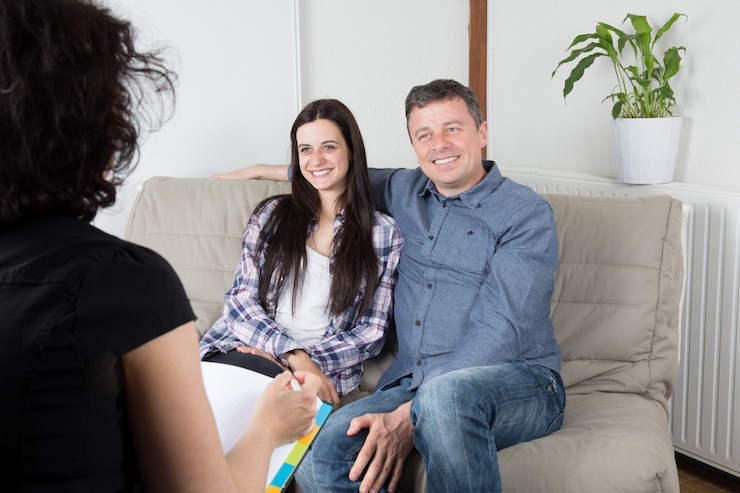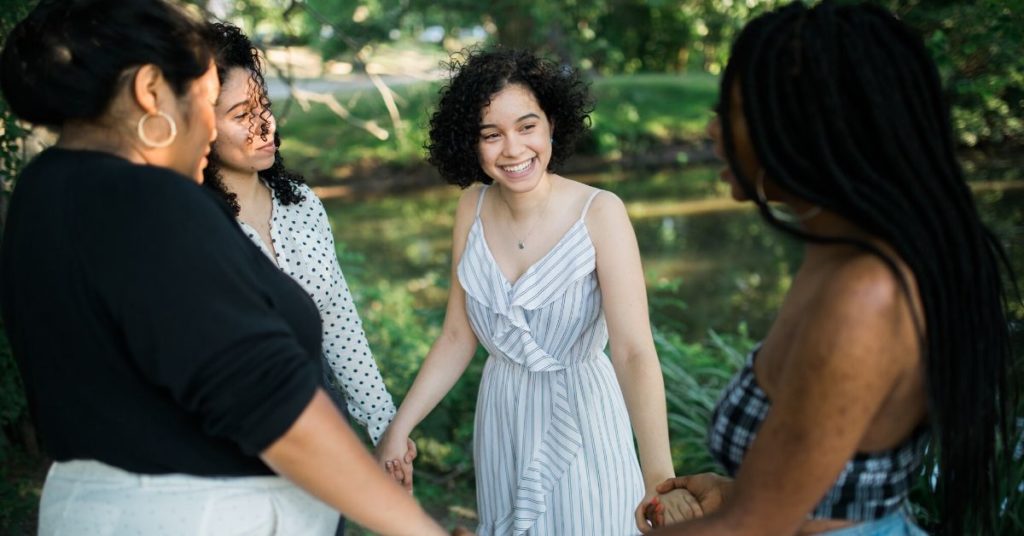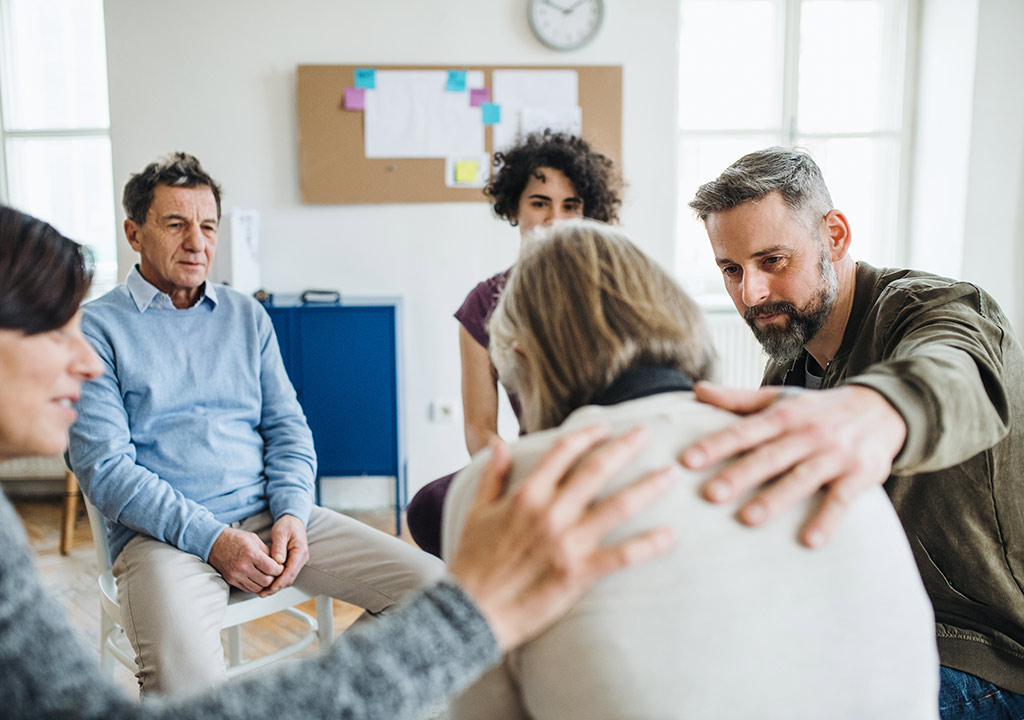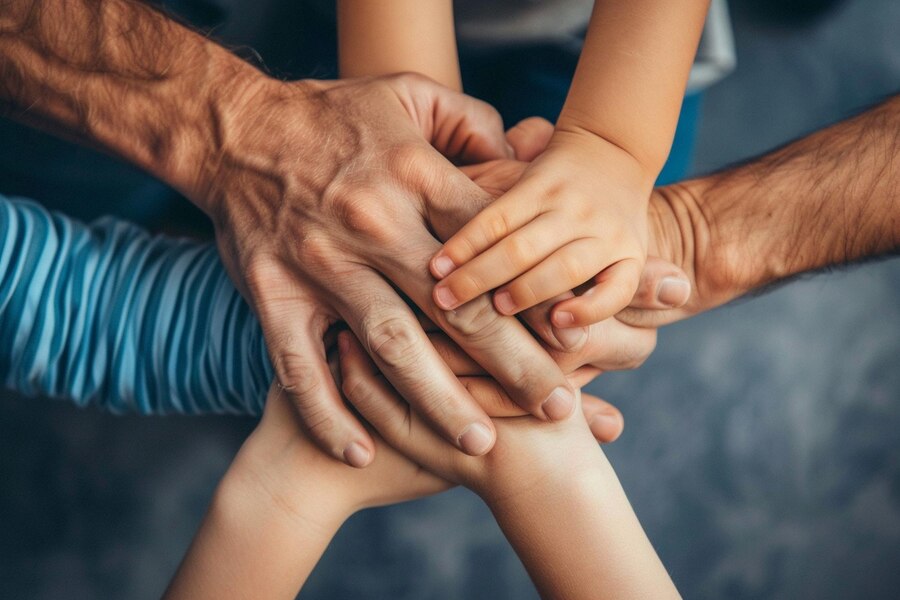Rebuilding Your Life After Couples Rehab: Tips for Lasting Change
Completing a couples rehab program is a monumental step toward healing, but the real work begins after leaving the structured environment of treatment. Many couples feel a mix of excitement and uncertainty as they transition back into everyday life, wondering how to maintain their progress while navigating real-world challenges.
At Couples Rehabs in Orange County, we understand that recovery is a lifelong journey. Achieving long-term sobriety and a healthy relationship requires commitment, strategies, and ongoing support. This guide explores essential steps for rebuilding your life after couples rehab, ensuring lasting change while strengthening your bond as partners in recovery.
1. Creating a Solid Aftercare Plan
Leaving a rehab program without an aftercare plan can be risky. The structured environment of treatment provides accountability and guidance, which must be replaced with a personalized strategy for sustained recovery.
Key Elements of an Effective Aftercare Plan:
- Continued Therapy: Individual and couples counseling can reinforce the coping strategies learned in rehab.
- Support Groups: Engaging in 12-step programs like Alcoholics Anonymous (AA) or Narcotics Anonymous (NA), or non-traditional groups such as SMART Recovery, can provide ongoing encouragement.
- Relapse Prevention Strategies: Identifying triggers and having a relapse prevention plan tailored to your specific needs is crucial.
- Sober Living Considerations: Some couples benefit from a sober living home in Orange County, where they can adjust to daily life in a structured, substance-free environment before fully reintegrating.
A well-thought-out aftercare plan ensures that you and your partner stay on track while reinforcing the foundation of your recovery journey together.
2. Rebuilding Trust and Strengthening Communication
Addiction takes a toll on relationships, often leading to broken trust, miscommunication, and emotional wounds. Post-rehab, prioritizing open and honest communication is vital to rebuilding a healthy dynamic.
Tips for Strengthening Communication:
✔ Practice Active Listening: Make an effort to truly hear your partner’s concerns without interrupting.
✔ Set Healthy Boundaries: Define what is and isn’t acceptable in your new life together.
✔ Stay Transparent: Openly discuss triggers, cravings, and emotional struggles instead of hiding them.
✔ Use “I” Statements: Instead of blaming (“You always…”), use phrases like “I feel…” to express emotions constructively.
Couples Rehabs in Orange County emphasizes that lasting recovery is about more than just staying sober—it’s about rebuilding a relationship rooted in trust, respect, and emotional connection.
3. Cultivating a Healthy Lifestyle
Recovery is not just about avoiding substances; it’s about creating a life that no longer revolves around addiction. Establishing healthy habits can improve mental and physical well-being, reducing the risk of relapse.
Essential Healthy Lifestyle Changes:
- Prioritize Nutrition: Eating balanced meals rich in vitamins and minerals can boost energy and mood.
- Exercise Regularly: Physical activity—whether it’s yoga, hiking, or weight training—helps reduce stress and prevent cravings.
- Improve Sleep Hygiene: Restful sleep plays a crucial role in emotional stability and relapse prevention.
- Engage in Hobbies: Rediscover old passions or explore new interests that bring joy and fulfillment.
At Couples Rehabs in Orange County, we encourage couples to develop routines that support physical, emotional, and spiritual well-being, making sobriety more sustainable.
4. Identifying and Managing Triggers
Triggers—whether people, places, emotions, or stressors—can lead to cravings and relapse if not properly managed. Understanding and avoiding these triggers is essential for lasting recovery.
How to Handle Triggers Effectively:
- Recognize High-Risk Situations: Avoid environments that tempt you to revert to old behaviors.
- Develop Coping Mechanisms: When stress arises, turn to healthy outlets like meditation, journaling, or deep breathing.
- Create a Support System: Surround yourself with sober friends, family, and mentors who uplift and encourage your growth.
By acknowledging and preparing for triggers, couples can face challenges with confidence and resilience, maintaining the progress they’ve worked so hard to achieve.
5. Establishing a New Social Circle
One of the hardest yet most important steps post-rehab is distancing from toxic relationships and building a new, supportive community.
How to Build a Positive Social Life in Recovery:
- Seek Out Sober Activities: Join sober meetups, fitness groups, or creative classes that align with your interests.
- Reconnect with Loved Ones: Repair relationships that addiction may have strained, focusing on rebuilding trust over time.
- Engage in Volunteer Work: Helping others can boost self-esteem and reinforce a sense of purpose.
Finding new, meaningful connections can enhance emotional support, making the transition into a sober lifestyle smoother.
6. Finding Purpose Through Work and Passion Projects
Addiction often robs individuals of motivation and direction. Post-rehab, rediscovering a sense of purpose is critical for long-term success.
Ways to Find Purpose After Rehab:
- Career Development: Whether returning to work, pursuing higher education, or switching careers, professional growth provides a sense of stability.
- Creative Outlets: Writing, painting, music, or photography can serve as therapeutic tools in recovery.
- Spiritual Exploration: Many find strength in spiritual or mindfulness practices, whether through religion, meditation, or personal reflection.
At Couples Rehabs in Orange County, we encourage individuals to explore new passions that bring joy and fulfillment, reinforcing their commitment to a sober future.

7. Maintaining Long-Term Support
Recovery is a continuous process that requires long-term support and reinforcement. Couples who remain engaged in therapy, support groups, and sober communities tend to experience greater success in preventing relapse and maintaining healthy relationships.
Ongoing Support Options:
- Regular Check-Ins with a Therapist
- Alumni Programs for Continued Community Engagement
- Monthly Relationship Check-Ins with a Mentor or Sponsor
Staying connected to the right support systems ensures that recovery remains a priority in daily life.
Frequently Asked Questions (FAQ) – Life After Couples Rehab
At Couples Rehabs in Orange County, we know that leaving a structured rehab environment and transitioning back into daily life can be challenging. To help you navigate this journey, we’ve compiled a comprehensive FAQ section covering essential aspects of post-rehab life, relapse prevention, and relationship strengthening in recovery.
1. What Should Couples Expect After Completing Rehab?
After completing a couples rehab program in Orange County, partners often experience a mix of relief, excitement, and anxiety about maintaining sobriety. The transition back to daily life requires commitment, structure, and ongoing support. Couples should establish a solid aftercare plan, including therapy, relapse prevention strategies, and sober lifestyle choices to reinforce their progress.
2. How Can Couples Prevent Relapse After Rehab?
Relapse prevention is a key focus for couples leaving rehab. The best way to avoid relapse is by:
✔ Attending support groups like AA, NA, or SMART Recovery
✔ Maintaining open and honest communication
✔ Avoiding high-risk situations that trigger cravings
✔ Practicing stress management techniques such as meditation or exercise
✔ Engaging in continued therapy to reinforce healthy coping mechanisms
At Couples Rehabs in Orange County, we emphasize that relapse is not failure—it’s a sign that adjustments are needed in your recovery plan.
3. Why Is Continued Therapy Important After Couples Rehab?
Therapy plays a critical role in long-term recovery, as addiction often stems from deep-seated emotional and psychological factors. Couples therapy and individual counseling help partners:
- Address unresolved trauma
- Improve communication and conflict resolution skills
- Rebuild trust and strengthen emotional bonds
- Develop long-term coping strategies for maintaining sobriety
Ongoing therapy is a key pillar of lasting recovery and relationship rebuilding.
4. How Can Couples Rebuild Trust After Addiction?
Addiction can cause broken trust, emotional wounds, and communication breakdowns. Rebuilding trust after couples rehab requires patience, consistency, and honesty. Some key steps include:
- Following through on commitments to demonstrate reliability
- Practicing open, honest conversations about thoughts, feelings, and struggles
- Attending counseling sessions together to work through past wounds
- Setting and respecting personal boundaries
Trust takes time to rebuild, but with consistent effort, couples can create a stronger, healthier foundation than before.
5. What Are Common Triggers That Can Lead to Relapse?
Understanding personal triggers is essential for long-term sobriety. Common relapse triggers include:
- Stress and unresolved emotional pain
- Being around people who use substances
- Social pressure or celebrations involving alcohol
- Returning to old routines and environments
- Relationship conflicts and emotional distress
At Couples Rehabs in Orange County, we provide personalized relapse prevention plans to help partners identify and manage their triggers effectively.
6. How Can Couples Build a Healthy Lifestyle in Recovery?
Adopting a healthy lifestyle supports long-term recovery and strengthens relationships. Some positive changes include:
✔ Eating a balanced, nutritious diet
✔ Exercising regularly to reduce stress and improve mental well-being
✔ Engaging in sober hobbies like hiking, yoga, or art
✔ Prioritizing sleep and mental health through mindfulness practices
By creating a lifestyle centered around wellness and personal growth, couples can replace old habits with healthier, more fulfilling alternatives.
7. What Role Does a Support System Play in Long-Term Sobriety?
A strong support system is one of the most important factors in maintaining long-term recovery. Surrounding yourself with positive, sober influences provides encouragement and accountability. Support networks may include:
- 12-step groups like AA or NA
- Non-12-step recovery communities
- Family and friends who support sobriety
- Therapists and recovery coaches
At Couples Rehabs in Orange County, we help clients establish strong, lasting support networks to maintain a successful recovery journey.
8. Should Couples Avoid Social Events Where Alcohol or Drugs Are Present?
In early recovery, it’s highly recommended to avoid high-risk social situations that involve alcohol or drugs. If attending such events is unavoidable, consider these strategies:
✔ Bring a sober friend for support
✔ Have an exit plan in case cravings arise
✔ Practice saying ‘no’ confidently
✔ Engage in conversations and activities that don’t revolve around substances
As time progresses, individuals develop stronger coping mechanisms and may feel more comfortable in social settings, but safety and sobriety should always come first.
9. How Can Couples Find New Social Circles After Rehab?
Developing a new, sober social circle is crucial for long-term success. Some ways to build healthy relationships include:
- Joining sober meetups or hobby groups
- Engaging in fitness or wellness communities
- Volunteering for organizations that align with personal values
- Attending church or spiritual groups
Couples who surround themselves with like-minded, supportive individuals have a higher chance of maintaining long-term sobriety.
10. How Can Couples Stay Motivated in Their Recovery Journey?
Staying motivated in recovery requires consistent effort, personal growth, and celebrating progress. Here’s how couples can keep moving forward:
✔ Set small, achievable goals (e.g., 30 days sober, six months in therapy)
✔ Celebrate milestones to reinforce motivation
✔ Engage in activities that bring joy and purpose
✔ Regularly reflect on the progress made since starting rehab
✔ Continue personal development through therapy and education
At Couples Rehabs in Orange County, we emphasize that recovery is not just about abstinence—it’s about creating a fulfilling, meaningful life together.
Conclusion: Embracing a Future of Growth and Connection
Life after couples rehab is not without challenges, but with the right mindset, support system, and commitment to growth, couples can build a strong, sober, and fulfilling future together.
At Couples Rehabs in Orange County, we provide the tools and resources needed for lasting change, offering continued support for couples dedicated to long-term recovery. By embracing healthy habits, strengthening relationships, and staying connected to supportive communities, you and your partner can thrive in your new, substance-free life.
Recovery is not just about sobriety—it’s about reclaiming happiness, love, and purpose. Take the next step toward a brighter future, and remember: every day is a new opportunity for growth and renewal.









Recent Comments